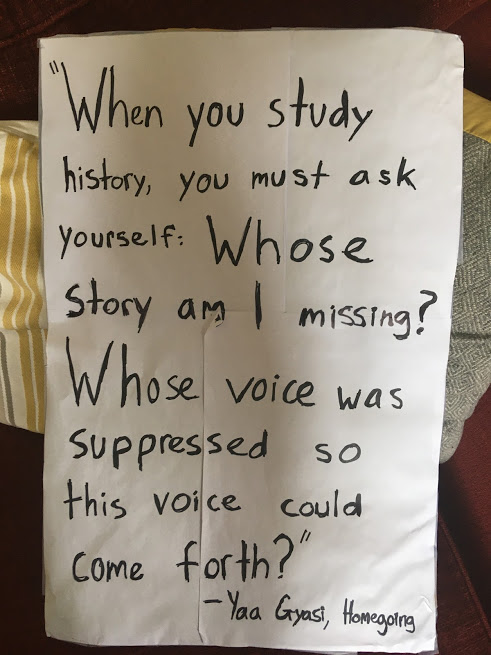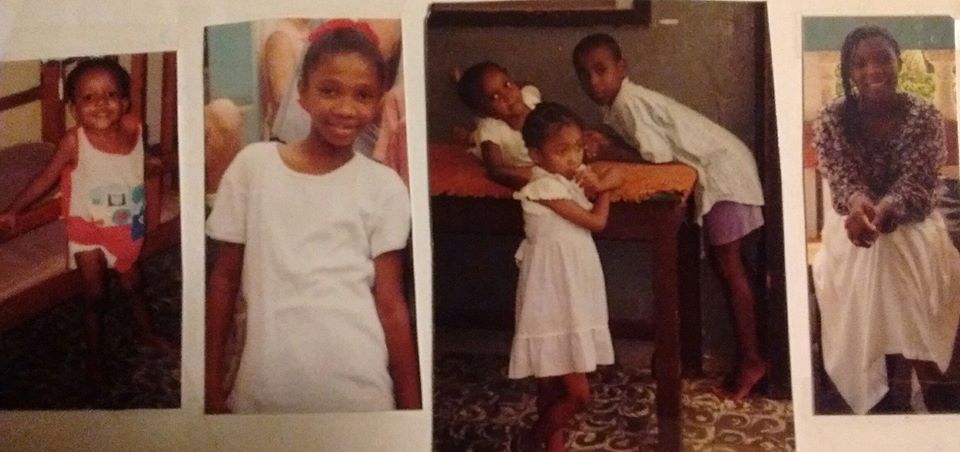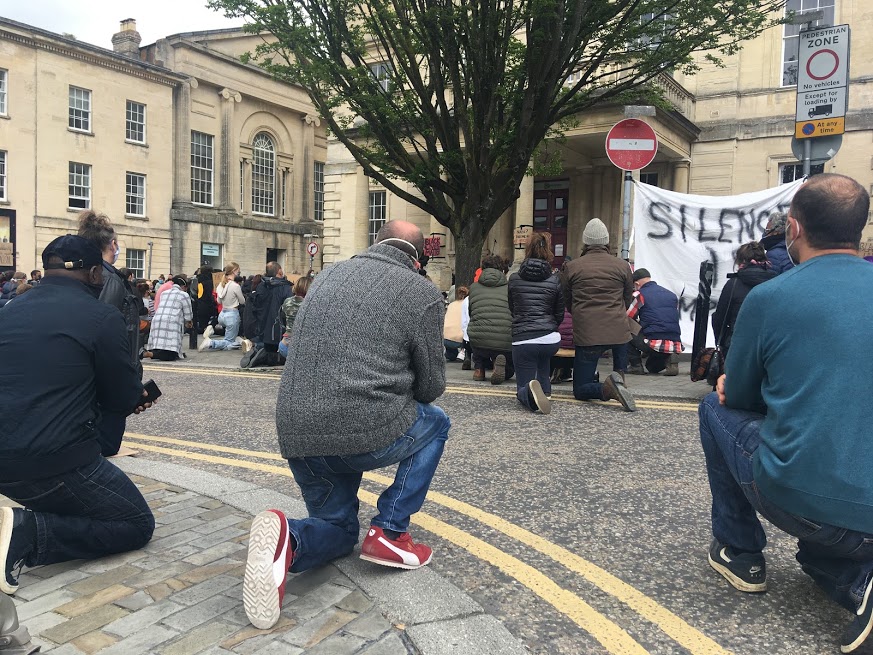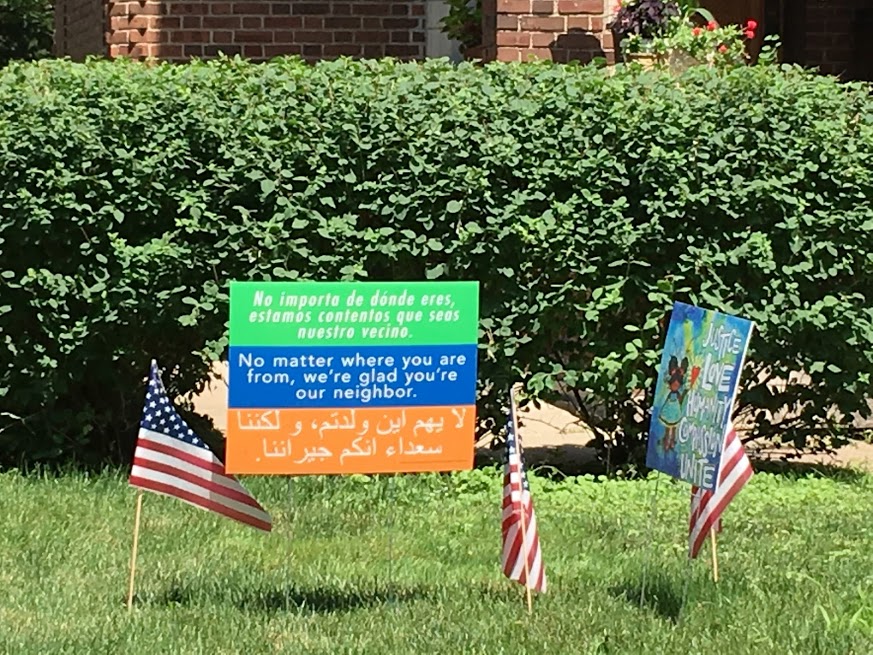This Week’s Bit of String: A nation of former slaves
Long known as the Western Hemisphere’s poorest nation, few people know Haiti’s history. It was founded in 1804 by the slave population who boldly overthrew their French “masters.” However, they were then forced to pay money for their freedom or the French (with British help) would reinvade. Haitians started their country in terrible debt, many of them uneducated. The world wouldn’t trade with them. They were never given a chance to catch up to other nations.
In contrast, the American Revolution originated over taxes. I remember my childhood disappointment when I learned this. How unglamorous and ignoble!
Imagine then my distress when I was told a couple years later that the American Civil War wasn’t over slavery, just states’ rights. Yes, it was over states’ rights to hold people captive and abuse them. However, the North wasn’t honourable enough to fight the South over liberty and equality. It wanted its stature and capital back.

And finally, I was presented with the embarrassing discrepancy between the actual dates of both World Wars and the smaller range of years I’d learned in American history books. We were years late to both fights. Land of the free and home of the brave—where were we?
Now people in my country are fighting for causes of greater value. Do our voices belong in this fight after being silent? What shortcomings held us back before?
Guilt and Persecution
People of colour in the USA and other countries have faced a similarly difficult journey to Haitians. No one rushed to provide freed slaves shelter or teach them to read. No one gave them therapy to recover from family separations. Instead there was sharecropping, for-profit incarceration, Jim Crow, lynching, redlining, police brutality, and probably more I haven’t read about yet.
155 years of those things doesn’t enable anyone to get over the even worse 246 slavery years that preceded them. Yet we’ve seen prominent white TV hosts argue that slavery wasn’t that bad, some masters were nice for goodness’ sake, while the same hosts raise hell if Starbucks makes a cup design less Christmassy.

Surely Jesus would not have shared Fox News’s priorities. However, religion seems to reinforce white silence now, perhaps because religions are focused around martyrs. Their exalted figures have suffered, and often people reduce that to an idea that suffering in itself warrants exultation. I believe that’s why some evangelicals support Trump rather than the African Americans living under constant bodily threat. His “suffering” is more like theirs.
In the social media age, many of us aren’t great at pausing our quest for attention. No one wants to relinquish a single ‘U ok hon?’ Whenever someone responds to Black lives matter with “All lives matter,” I picture a person uncomprehending of object permanence, who fears if their race loses the spotlight for an instant, they’ll disappear. A person who can’t see what’s worth fighting for.
Anti-racism means more than disapproving of extrajudicial killings. It means accepting—and expressing—that people have bigger, more ingrained problems than ours. It’s maintaining perspective: having to change our vocabulary to eradicate certain terms, for example, doesn’t equate to the abuses and injustices against people of colour which those terms represent. Feeling shame for how our systems treat minorities is uncomfortable, but nothing like actually receiving that treatment.
Deference and Dominance
In Haiti I noticed a lust to be white amongst some of the young people I met, as if their culture were still under invasion. My Haitian friends wrote me letters posted with stamps that showed white fairy tale characters, although their heritage is full of black heroes and legends. Schoolgirls tried to wipe a birthmark from my arm, not wanting my whiteness sullied.
We white people do the same thing, clinging to figures that have done nothing for us. We’ll settle for so little from those in power. $1200 for months of being unemployed during a pandemic, wow! Or: hey, that heavily armed police officer was polite when I asked directions. What’s all the fuss about?
When our race is the one in power, we have an innate belief that we as an individual can make it that far, too. We don’t want to upset the status quo because change might not benefit us. Why struggle against power figures who look like we do, who could one day be us?

Up till now, some liked having local police departments driving armoured humvees. Some were glad when they could go to football games without having to witness a silent, kneeling plea to stop killing black people. And the rest of us who sympathised with Kaepernick’s point, and who felt nervous about law enforcement with deadly weapons, we didn’t want an argument. Partly we cloaked this in insecurity: who are we to speak up, when we’ve not been ordained by racial struggle? But also it was about staying in our comfort zone.
Then there was a grossly mishandled pandemic. The administration didn’t want to share medical supplies, calling them “ours.” Protest broke out and they called cities “battle spaces” and said they’d send in the military to “dominate.” Increasingly it’s clear the president sees America as another building to stamp his name on.
So more of us decide to fight. Our status quo is already threatened from the top. We might as well disrupt it.
It’s human to care more about things that affect us. We still ache for people who live in fear, and who grieve for loved ones unjustly taken. But we’re not the heroes here. In the great white American tradition, let’s fight even though we’re late, even with less than selfless motives.
This is my attempt to examine my own privilege. Hopefully other white people do the same. People of colour shouldn’t have to explain it to us yet again! Let’s listen to their stories and thoughts, not demand them.

There are countless black people dealing gracefully with white reluctance to face their pain. Check out American footballer Emmanuel Acho’s series “Uncomfortable Conversations with a Black Man—” spoiler, he doesn’t make it uncomfortable at all. Visit Patrisse Cullors’s website, who co-founded the Black Lives Matter movement, and understand the aims of all the groups under the Organizations tab. Consider Reni Eddo-Lodge’s words in her book Why I’m No Longer Talking to White People About Race: “I don’t want to see white people wasting precious time profusely apologising rather than actively doing things.” Read Langston Hughes’s poem “Let America Be America Again” and Danez Smith’s “not an elegy for Mike Brown.” Recognise why people are fighting for change.
So amplify, and give money! Support protests as a reminder to legislators that we’re the ones who put them there. Since I’ve been to Minneapolis and loved it but never in my mind connected it to the nearby tragedy of Philando Castile, so far their Freedom Fund is the one I’ve chosen to donate to. Next up: more family discussions, more emails to officials, more sharing minorities’ thoughts and work, more donations to educational funding, and I think I’ll check out Dr. Mary Frances Berry’s book History Teaches Us to Resist.
How are you supporting change?